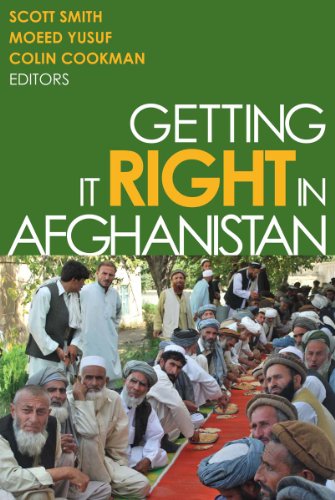scott smith moeed yusuf colin (4 Ergebnisse)
FeedbackSuchfilter
Produktart
- Alle Product Types
- Bücher (4)
- Magazine & Zeitschriften (Keine weiteren Ergebnisse entsprechen dieser Verfeinerung)
- Comics (Keine weiteren Ergebnisse entsprechen dieser Verfeinerung)
- Noten (Keine weiteren Ergebnisse entsprechen dieser Verfeinerung)
- Kunst, Grafik & Poster (Keine weiteren Ergebnisse entsprechen dieser Verfeinerung)
- Fotografien (Keine weiteren Ergebnisse entsprechen dieser Verfeinerung)
- Karten (Keine weiteren Ergebnisse entsprechen dieser Verfeinerung)
- Manuskripte & Papierantiquitäten (Keine weiteren Ergebnisse entsprechen dieser Verfeinerung)
Zustand Mehr dazu
- Neu (Keine weiteren Ergebnisse entsprechen dieser Verfeinerung)
- Wie Neu, Sehr Gut oder Gut Bis Sehr Gut (Keine weiteren Ergebnisse entsprechen dieser Verfeinerung)
- Gut oder Befriedigend (4)
- Ausreichend oder Schlecht (Keine weiteren Ergebnisse entsprechen dieser Verfeinerung)
- Wie beschrieben (Keine weiteren Ergebnisse entsprechen dieser Verfeinerung)
Einband
- alle Einbände
- Hardcover (Keine weiteren Ergebnisse entsprechen dieser Verfeinerung)
- Softcover (4)
Weitere Eigenschaften
- Erstausgabe (1)
- Signiert (Keine weiteren Ergebnisse entsprechen dieser Verfeinerung)
- Schutzumschlag (1)
- Angebotsfoto (Keine weiteren Ergebnisse entsprechen dieser Verfeinerung)
Sprache (1)
Gratisversand
- Kostenloser Versand nach Deutschland (Keine weiteren Ergebnisse entsprechen dieser Verfeinerung)
Land des Verkäufers
Verkäuferbewertung
-
Getting It Right in Afghanistan
Verlag: United States Institute of Peace Press, 2013
ISBN 10: 1601271824 ISBN 13: 9781601271822
Sprache: Englisch
Anbieter: ThriftBooks-Atlanta, AUSTELL, GA, USA
EUR 6,06
Währung umrechnenEUR 7,62 für den Versand von USA nach DeutschlandAnzahl: 1 verfügbar
In den WarenkorbPaperback. Zustand: Very Good. No Jacket. May have limited writing in cover pages. Pages are unmarked. ~ ThriftBooks: Read More, Spend Less 1.2.
-
Getting It Right in Afghanistan
Verlag: United States Institute of Peace Press 01/n /31 J, 2013
ISBN 10: 1601271824 ISBN 13: 9781601271822
Sprache: Englisch
Anbieter: Bahamut Media, Reading, Vereinigtes Königreich
EUR 11,85
Währung umrechnenEUR 3,45 für den Versand von Vereinigtes Königreich nach DeutschlandAnzahl: 2 verfügbar
In den WarenkorbZustand: Very Good. Shipped within 24 hours from our UK warehouse. Clean, undamaged book with no damage to pages and minimal wear to the cover. Spine still tight, in very good condition. Remember if you are not happy, you are covered by our 100% money back guarantee.
-
Getting It Right in Afghanistan
Verlag: United States Institute of Peace Press 01/n /31 J, 2013
ISBN 10: 1601271824 ISBN 13: 9781601271822
Sprache: Englisch
Anbieter: AwesomeBooks, Wallingford, Vereinigtes Königreich
EUR 11,85
Währung umrechnenEUR 4,59 für den Versand von Vereinigtes Königreich nach DeutschlandAnzahl: 2 verfügbar
In den WarenkorbZustand: Very Good. This book is in very good condition and will be shipped within 24 hours of ordering. The cover may have some limited signs of wear but the pages are clean, intact and the spine remains undamaged. This book has clearly been well maintained and looked after thus far. Money back guarantee if you are not satisfied. See all our books here, order more than 1 book and get discounted shipping. .
-
Getting It Right in Afghanistan
Verlag: United States Institute of Peace Press, Washington DC, 2013
ISBN 10: 1601271824 ISBN 13: 9781601271822
Sprache: Englisch
Anbieter: Ground Zero Books, Ltd., Silver Spring, MD, USA
Erstausgabe
EUR 43,55
Währung umrechnenEUR 25,37 für den Versand von USA nach DeutschlandAnzahl: 1 verfügbar
In den WarenkorbTrade paperback. Zustand: Very good. Zustand des Schutzumschlags: No DJ issued. Presumed First Edition, First printing. viii, [2], 333, [5] pages. Map. Figures. Boxes. Notes. Tables. Contributors. Building an enduring and stable political consensus in Afghanistan's complex, multiactor environment requires clear analysis of the conflict. Getting It Right in Afghanistan addresses the real drivers of the insurgency, how Afghanistan's neighbors can contribute to peace in the region, and the need for more inclusive political arrangements in peace and reconciliation processes. Scott Smith is the deputy director for USIP's Afghanistan program. Formerly at the United Nations, he is the author of Afghanistan's Troubled Transition: Politics, Peacekeeping and the 2004 Presidential Election. Moeed Yusuf is director of South Asia programs at USIP. He has taught at Boston University and Quaid-e-Azam University, Pakistan and has previously been affiliated with the Brookings Institution and the Harvard Kennedy School. A former research analyst at the Center for American Progress, Colin Cookman is a research contractor for USIP. He also served as a member of Democracy International's election observation team during the 2010 parliamentary elections in Afghanistan. As the United States and NATO prepare to withdraw their troops from Afghanistan in 2014, the question remains as to what sort of political settlement the Afghanistan government and the Taliban can reach in order to achieve sustainable peace. If all parties are willing to strike a deal, how might the negotiations be structured, and what might the shape of that deal be? Getting It Right in Afghanistan addresses the real drivers of the insurgency and how Afghanistan's neighbors can contribute to peace in the region. A recurring theme throughout the volume is the complex, multiactor conflict environment in Afghanistan and the resulting need for more inclusive political arrangements. The first set of chapters focus on internal political dynamics and Afghan political actors' views on a peace process. The second section covers Afghanistan's neighbors and their role in shaping the country's internal politics. Efforts to date to implement a peace and reconciliation process for Afghanistan are covered in the final section. Taken together, the book conveys the complexity and challenge of building an enduring and stable political consensus in Afghanistan's fragmented environment. Since beginning work in Afghanistan in 2002, the U.S. Institute of Peace (USIP) has been informing policy through accurate, clear analysis of the conflict that could shape a negotiated settlement. Comprising a collection of its analysis from 2002 to the present, Getting It Right in Afghanistan offers valuable insights to the policymakers charged with developing a new course of action for contributing to peace in Afghanistan and regional stability.


